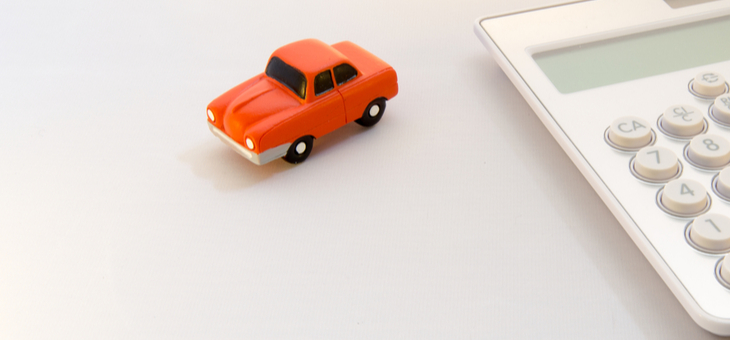Imagine never having to pay licence fees, registration and fuel excise again.
What’s the catch?
It would be replaced with a tax on how far you drive.
That’s the proposal the car industry has put in front of the federal government. It wants a major nationwide overhaul of vehicle registration, stamp duty, licence fees and fuel excise, replacing them with a tax on drivers for every kilometre they drive.
Victoria, South Australia and NSW have plans to levy electric vehicles per kilometre and reform several inefficient taxes on drivers.
Advocates for the new technology aren’t fans of this idea, and a body representing major car manufacturers says any such taxes could be a barrier to drivers adopting electric and hybrid tech.
Australia is already behind much of the world in this area.
However, Federal Chamber of Automotive Industries chief Tony Weber says it’s the time governments gain the “courage to overhaul outdated practices” and relieve drivers of a myriad of “outdated, confusing and inefficient charges”.
“An efficient road-user charging scheme can address all vehicle users regardless of the type of vehicle they drive, how often it is driven and the purpose of the travel,” said Mr Weber.
“For example, it could be based on vehicle mass, distance travelled, time of travel or a combination of factors.”
Read more: Does this tactic at the bowser save you money?
Along with per kilometre charges for all drivers, the chamber proposes congestion and peak-hour charges on motorists to help clear grid-locked freeways in Melbourne and Sydney.
Cars would be monitored using SIM technology that already exists in new car combustion engines, plug-in hybrids and battery electric cars.
“Over the longer term, we believe a comprehensive approach to road-user charging that remains technology-neutral will result in a greater benefit to motorists and to governments. Opportunities for important reforms like this are not common,” said Mr Weber.
Victoria is already set to become the first Australian state to enforce an electric vehicles tax.
Owners of petrol cars already pay fuel excise of around 42.7 cents per litre. The average car uses about 10.8 litres per 100 kilometres, so drivers pay excise of about 4.6 cents per kilometre for road use.
This is much higher than Victoria’s proposed distance charge for electric and low-emissions vehicle drivers of 2.5 cents per kilometre driven and 2 cents for plug-in hybrids.
Infrastructure Partnerships Australia chief executive Adrian Dwyer applauds Victoria leading the way on EV charges.
“The constitution is clear, the states hold all the levers here, and a national approach must be state-led. Victoria is taking that lead, NSW is following suit,” he said.
“Technology neutrality is a good principle, but the current system isn’t neutral, it specifically charges only one technology set while the future of transport technology is entirely missed.”
The federal government collects about $557 in fuel excise per car per year.
Read more: What to do if your diesel car runs out of fuel
Many rue the new tax as a deterrent to the uptake of new electric and hybrid technology. Last year, electric cars comprised just 0.7 per cent of all new cars sold.
But every one of those 20,000 people who owns an electric car pays no excise. Should the uptake increase as predicted, the government’s fuel excise income will take a hit.
The excise doesn’t all necessarily go into building and maintaining roads, but the federal government is a generous funder of road construction and maintenance.
All told, governments spent $28.5 billion on roads in 2018-19.
The governments want EV owners to pay their way.
Those who argue against the new charges say it will harm the uptake of electric vehicles, when really the main deterrent would be the cost of buying a new EV.
If governments are serious about encouraging EV uptake, considering 75 per cent of new car sales by 2030 need to be electric for Australia to achieve net zero emissions by 2035, they could reduce taxes on electric vehicle purchases.
According to the ABC, electric car makers are ignoring Australia when releasing their latest models, with some saying the country is becoming a “Third World dumping ground” for outdated petrol-engine technology.
The other main disincentive to buying an EV is the lack of choice.
Read more: Can you afford to switch to an electric car?
Affordably priced EVs are in very short supply in Australia, says University of Queensland transport expert Jake Whitehead.
Australia has fewer EVs in the $30,000 to $60,000 range than other markets, says the Electric Vehicle Council.
“If we look at the UK, they’ve got some 32 models available in that range – we have about four,” said council CEO Behyad Jafari.
“And even those are only bought here in very low allocations.”
‘Supply’ is the main reason people aren’t buying EVs – not demand, Mr Whitehead confirmed.
“If there’s not a vehicle to sell, it doesn’t matter how much demand there is.”
Car manufacturers such as Volkswagen say it would ship EVs to Australia if the federal government introduced mandatory carbon targets backed up with fines.
This would give carmakers a greater financial incentive to ship EVs to Australia.
“There isn’t a day go by where we’re not answering a query on when we’ll be able to supply an electric vehicle in Australia,” says Volkswagen Group Australia general manager Michael Bartsch.
“[But] where you have no legislative imperative, that is always going to be the last place you send the vehicles.”
Do you think a flat charge could be applied to all drivers, regardless of engine type? Why not share your thoughts in the comments section below?
If you enjoy our content, don’t keep it to yourself. Share our free eNews with your friends and encourage them to sign up.

